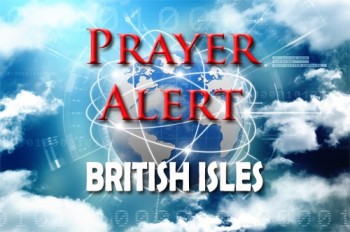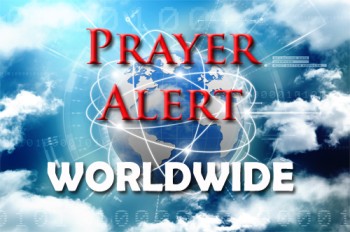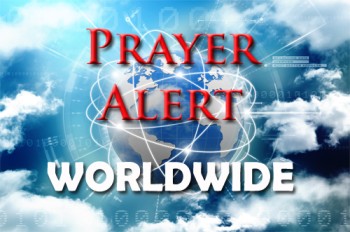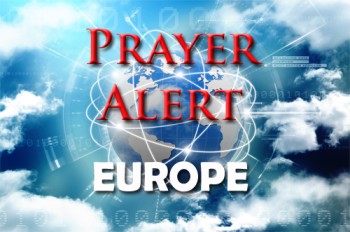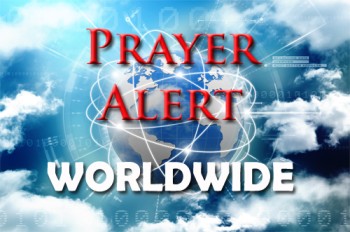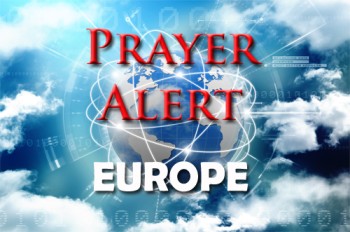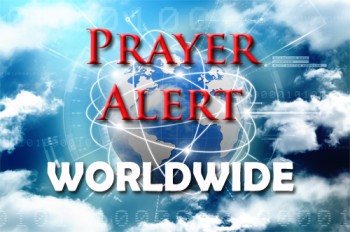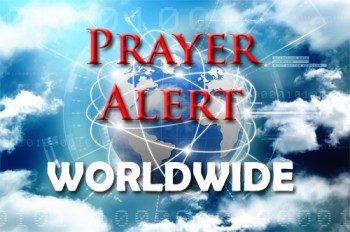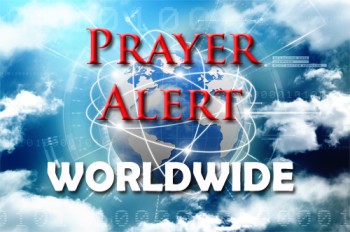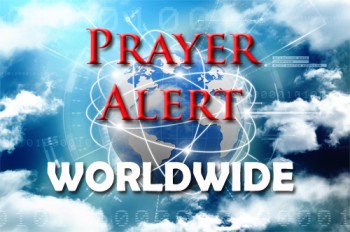Displaying items by tag: protests
Palestine Action protesters ‘not guilty’ ahead of potential re-trial
Six Palestine Action activists have been cleared of aggravated burglary following a break-in at a UK subsidiary of Israeli defence firm Elbit Systems near Bristol, but several still face the prospect of retrial on other serious charges. The raid took place in August 2024, when a group used a vehicle to breach the site’s perimeter and entered the building in protest against what they believe is the company’s involvement in supplying weapons to Israel - claims Elbit Systems strongly denies. While three defendants were acquitted of violent disorder, the jury was unable to reach verdicts on remaining charges for others, including grievous bodily harm against one defendant accused of injuring a police officer. Five activists have been released on bail, with one remanded in custody ahead of a further hearing in February. The trial heard conflicting accounts of events, with prosecutors alleging planned violence using sledgehammers, while the defence insisted the group acted defensively and without intent to harm. Outside the court, supporters gathered to celebrate the partial acquittals. The case has raised wider debate about protest, conscience, public order, and the limits of lawful dissent.
Minneapolis: continuing protests and criticism over federal crackdown
Two agents have been placed on administrative leave following the fatal shooting of Alex Pretti, a 37-year-old intensive care nurse, in Minneapolis on 24 January. The killing has sparked protests, national outrage, and calls for accountability within the Department of Homeland Security (DHS). Initial official claims that Pretti was brandishing a gun have been questioned after video analysis found no weapon visible. A preliminary report states the shooting occurred during a physical struggle, contradicting earlier statements. The incident comes as protests continue over the federal immigration crackdown. Minneapolis mayor Jacob Frey has clashed publicly with Donald Trump over immigration enforcement and rhetoric, while another critic, Representative Ilhan Omar, who was attacked in a public meeting on 26 January, has blamed Trump for increases in threats against her. With tensions running high and investigations continue, lawmakers are considering impeachment proceedings and removing funding for DHS in spending legislation which Congress must pass to keep the government from shutting down on 1 February. For an example of the heavy-handedness of the federal approach, see
Iran: minister threatens USA after protests crackdown
Iran’s foreign minister has issued his most direct warning yet to the USA, threatening a full military response if Iran faces renewed attack, as the country remains under intense pressure following its deadly crackdown on protests. Writing in a US newspaper, he defended the government’s actions and blamed armed unrest for the violence, despite video evidence suggesting security forces fired on unarmed demonstrators. His remarks come amid heightened regional tensions, with a US aircraft carrier group moving toward the Middle East and American military assets repositioned across the region. Iran has also been accused of launching missile and drone strikes against a Kurdish separatist group in northern Iraq, further escalating concerns. Human rights organisations report more than 4,500 people killed and over 26,000 arrested during the protests, with fears growing that some could face execution. Iran’s Supreme Leader has acknowledged thousands of deaths while blaming the United States. Though protests have subsided amid internet shutdowns, the scale of casualties and rising military rhetoric have raised alarms about wider regional conflict and severe consequences for civilians.
France seeks delay to EU-Mercosur trade agreement
France is seeking to delay a vote to ratify the long-negotiated EU–Mercosur trade agreement, arguing it threatens farmers and risks inflaming domestic unrest. The deal with Argentina, Brazil, Paraguay, and Uruguay was concluded a year ago after talks dating back to 1999. Supporters say it would open South American markets to European cars, machinery, and wines at a time of US tariffs and rising Chinese competition. Opponents, led by France, warn that cheaper agricultural imports produced under looser standards could undercut European farmers and encourage environmental harm. Protests are intensifying: as many as 10,000 farmers are expected to descend on Brussels as leaders meet. Although the European Commission has proposed safeguards, Paris calls them insufficient and is urging a postponement to secure stronger protections. The timing of the vote coincides with efforts by Sebastien Lecornu’s minority government to secure parliamentary approval for a budget, including suspending Emmanuel Macron’s controversial pension reform, before the end of 2025. Ursula von der Leyen is due to travel to Brazil on Monday next week to sign the agreement and create the world’s largest free-trade area.
Minneapolis: pepper spray used on protesters against crackdown on Somalis
A confrontation between federal agents and residents in a Somali neighbourhood of Minneapolis has heightened fear and tension within the community. Witnesses reported that ICE agents used pepper spray to disperse a crowd of protesters after checking identifications in restaurants, on the streets, and at a senior housing complex. The crackdown follows the decision by Donald Trump to end temporary protected status for Somalis, calling them ‘garbage’ and saying he does not want them in the country. The move has drawn denunciations from leaders of the Somali community and governor Tim Walz. About 84,000 of the 260,000 Somalis in the country live in the Minneapolis-St Paul area, the overwhelming majority of them US citizens. Over half were born in the U.S., and 87 per cent of those born elsewhere are naturalised citizens. Federal officials justify the operation as targeting criminals, giving details of nine criminals who have been arrested recently, but local leaders argue that such actions unfairly stigmatise an entire community.
Serbia: protesters form human shield against Jared Kushner’s development plans
Thousands of demonstrators in Belgrade have formed a human shield around the bomb-damaged former Yugoslav defence ministry building, vowing to stop its redevelopment into a luxury complex tied to a company owned by Jared Kushner, Donald Trump's son-in-law. The $500 million project, backed by president Aleksandar Vučić’s pro-Trump government, aims to transform the ruins - once bombed by NATO in 1999 - into a hotel and office district. Critics, however, see the move as an affront to national memory, calling the complex a sacred symbol of resistance against foreign aggression. Lawmakers recently fast-tracked legislation to permit construction despite an ongoing criminal investigation into alleged document forgery used to strip the site’s heritage status. The protests, led largely by students and youth movements, echo wider anger over corruption and government control. As chants of defiance echoed through the capital, protesters pledged unity to defend Serbia’s architectural and historical integrity against what they view as political and economic exploitation.
Tanzania: unprecedented level of protest after landslide presidential election
The recent election which saw president Samia Suluhu Hassan win with 98% of the vote has exposed deep cracks in Tanzania’s democratic foundations. The landslide result - achieved amid opposition arrests, media restrictions, and reports of violence - has drawn widespread criticism from observers and foreign governments. What followed was unprecedented in Tanzania’s history: mass youth-led protests erupting across major cities, demanding electoral justice and democratic reform. The unrest reflects a broader generational awakening in Africa, where frustration with corruption, repression, and economic inequality is driving young citizens to demand accountability. With around 77% of the population aged under 35, the country’s future hinges on how leaders respond to this rising tide of civic resistance. Despite the violence and censorship surrounding the protests, they reveal a powerful truth: citizens are no longer content with symbolic democracy. Tanzania’s youth are asserting their right to shape their nation’s destiny. Going forward, the demand for a new constitution should be the priority.
Madagascar: military takeover after president flees
Madagascar has plunged deeper into political turmoil after Colonel Michael Randrianirina announced that the military was seizing control of the nation, moments after parliament voted to impeach president Andry Rajoelina. He said that the armed forces would form a governing council and appoint a civilian-led government, suspending both the constitution and the constitutional court. The move followed weeks of youth-led protests over widespread poverty, power shortages, and corruption (see): a critical moment came on 11 October, when Colonel Randrianirina and soldiers from his elite CAPSAT unit joined the demonstrators and turned against the president. The crisis evokes painful memories of Madagascar’s history of coups, including the 2009 uprising that first brought Rajoelina to power. With 75% of citizens living in poverty, frustrations among the young have erupted into demands for reform and dignity. As soldiers and protesters fill the streets, Madagascar stands at a crossroads between renewed authoritarian rule and the hope for democratic renewal.
Madagascar: protests continue despite government dissolution
Madagascar is facing mounting unrest as protests continue despite president Andry Rajoelina’s decision to dissolve the government. The move, announced on state television, was intended to ease tensions following demonstrations over widespread water and power shortages. Rajoelina expressed sympathy to families of those killed and acknowledged administrative failings, yet protesters remain unsatisfied, demanding his resignation. Many argue that changing ministers is not enough, since the president himself holds ultimate responsibility. The demonstrations, largely led by Gen Z, represent one of the most serious challenges to Rajoelina’s leadership since his 2023 re-election. Authorities have responded with curfews in Antananarivo and other major cities, and police have repeatedly used teargas and fired rubber bullets at demonstrators. The UN has said that at least 22 have been killed and over 100 injured, though the government disputes these figures.
Nepal: the challenges facing new PM
New prime minister Sushila Karki, a former chief justice known for her uncompromising stance against corruption, faces an immense challenge just weeks after taking office. Chosen after huge protests which toppled her predecessor KP Sharma Oli, she has six months to deliver elections and satisfy demands from Nepal’s energised Gen Z movement. Protesters are urging her to arrest senior leaders accused of graft, purge politically connected bureaucrats, and investigate the 74 protest-related deaths. Their support remains conditional, with leaders such as Sudan Gurung warning they will oust her if progress stalls. Karki has pledged an anti-corruption committee and a panel to examine the violence. Yet entrenched party power - especially Oli’s influence as head of the Communist Party - poses obstacles. With youth unemployment above 20% and decades of political instability, Nepal stands at a pivotal moment reminiscent of the 2008 Maoist uprising. Karki must balance swift action and careful diplomacy to prevent renewed turmoil, while proving that democratic reform is possible.
